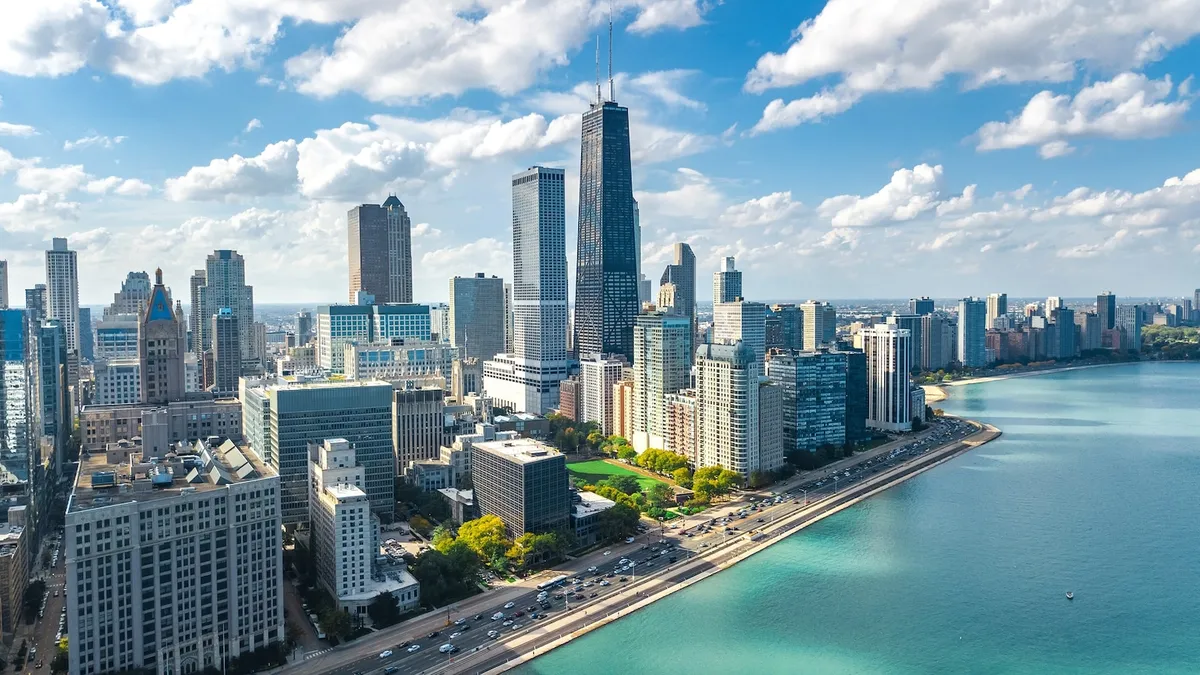
In a recent press conference held in the Oval Office, President Donald Trump expressed his intention to intensify efforts to combat crime in various cities across the United States, with a particular focus on Chicago—a city long criticized by the president for its crime rates under Democratic leadership. Trump has suggested that the strategies employed in Washington, D.C., where he deployed the National Guard and increased federal law enforcement presence, could serve as a model for addressing crime in Chicago.
During the conference, Trump highlighted the ongoing deployment of the National Guard in the nation’s capital, which has now lasted for eight days. He praised the Guard's collaboration with local police, stating, "The National Guard has done such an incredible job working with the police." He emphasized his commitment to making the country and its cities safer, stating, "We're gonna make our country very safe. We're going to make our cities very, very safe." Trump reiterated his focus on Chicago, claiming that crime is rampant there and that the current leadership is failing to address the issue effectively.
Trump claimed that residents, specifically stating that "African American ladies" have reached out for help, urging him to intervene in Chicago. However, data from the Chicago Police Department reveals a different narrative: overall crime in Chicago has decreased by 13% year-to-date compared to the previous year. Reports indicate 59,206 incidents in 2024, down from 68,165 in 2023, with notable declines in murders (down 31%) and robberies (down 33%). While crime has increased by 40% since 2021, the data shows significant reductions in violent crimes over the past few years.
In response to Trump's remarks, Chicago Mayor Brandon Johnson issued a statement expressing concern over the president's approach. He criticized the idea of deploying the National Guard, arguing that such actions could exacerbate tensions between residents and law enforcement. "The problem with the President's approach is that it is uncoordinated, uncalled for, and unsound," Johnson stated, emphasizing that the National Guard cannot replace the dedicated local law enforcement and community violence interrupters that work closely with the community.
Trump further indicated that Chicago would be the next city to receive federal assistance, adding that he would also extend help to New York City. However, he failed to provide specific details regarding the nature of the assistance needed in New York. Notably, crime statistics from the New York Police Department show a 4.74% decrease in overall crime this year compared to last, with crime levels dropping significantly since 1990.
Trump did not shy away from criticizing D.C. Mayor Muriel Bowser, claiming she has not adequately addressed public safety. He warned that if she does not improve her approach, the federal government might intervene. Despite Trump’s claims, crime rates in Washington, D.C., have decreased by 26% since 2024, marking a 30-year low, according to the latest statistics from the Metropolitan Police Department.
In an effort to improve the city, Trump announced plans to seek $2 billion from Congress to beautify Washington, D.C. He emphasized the need for cleanliness in the capital and outlined that the focus would be on a three-mile radius surrounding the White House and Capitol. "I think it's going to be very easy to get," he claimed, although representatives for key congressional leaders did not respond to inquiries about the proposal.
As discussions around crime and safety continue, it remains to be seen how Trump's plans will unfold and what impact they will have on cities like Chicago and New York.